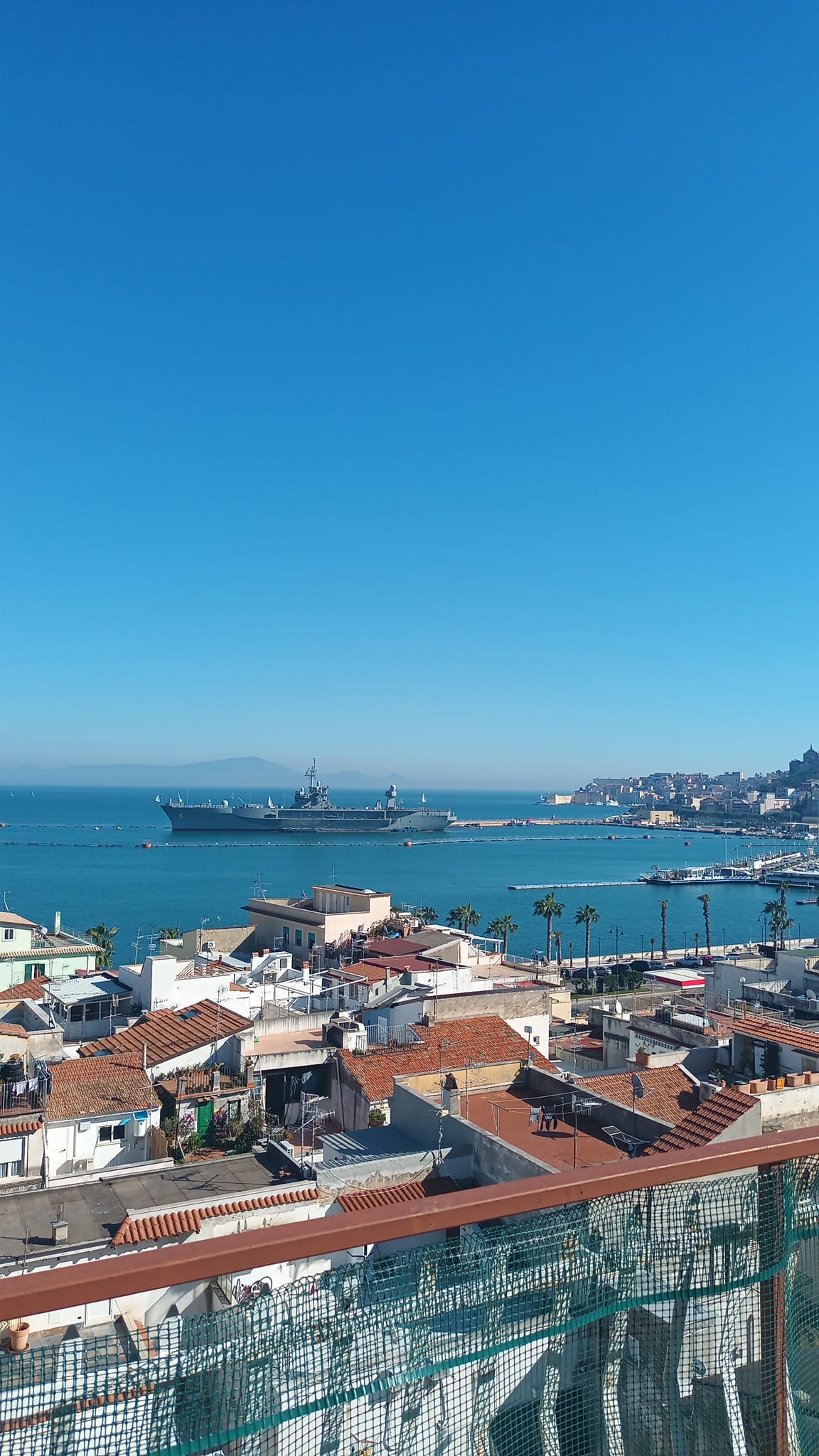It is quite extraordinary the amount of surveillance, or potential surveillance, one is subjected to in Italy. All Italians are by law required to carry identity cards, and the police have the power to stop you and ask to see your documents when they see fit. Incidentally, British tourists are supposed to carry their passports with them at all times, though in practice none ever do. A few carry a photocopy of the passport, or a driving licence, as I do.
In Palermo, in order to get into the ethnographical museum next to the Palazzina Cinese, I was asked for an identity document, and before they sold me my ticket, they wrote down my name and date of birth. Why this should be necessary, I do not know, nor can I work out how this fits in with the EU’s laws on data protection.
To fly from Palermo to Naples, which is an internal flight, one had to show one’s passport at check in and on getting on the plane. This is of course an internal flight, and I imagine Italian citizens would have to show an identity card.
On arrival at Naples Central station, I bought a ticket to Gaeta, which is a journey of less than an hour by fast train. It was necessary to show an identity document to buy the ticket, and they would not accept cash, only card. I presented my passport, and sure enough the resultant ticket had my name on it.
Some months ago, I was in Trieste where I met a sad person, an Indian citizen, who was marooned in Trieste because he had the money to get to Rome by bus, but the driver would not sell him a ticket or let him on board because he had no identity card. (His passport was in Rome, where he lived.)
Years ago, taking the night train to Como from Rome, I had to deposit my identity card with the train guard; not having one, I gave him my library card, which seemed to satisfy him.
Needless to say, wherever you stay, you have to produce a passport on check in, which is usually photographed. There is a law in Italy, which as far as I know is completely ignored, which says that if someone stays in your house for more than three days, you have to register this fact with the local police.
What all this amounts to is that one cannot travel in Italy without the police knowing, at least in theory, where you are going. This certainly applies to public transport. Private transport is different, but it has to be borne in mind that all the motorways have cameras, so your car can be tracked.
So, what do you do if you are a criminal, and want to travel the peninsula and not be traced? The obvious answer is to get a fake ID card, and there surely must be a roaring trade in such cards. This may not be difficult, for all I know. There may well be forgers who are producing such fake ID cards, and there may well be corrupt police who are issuing perfectly real ID cards to ‘fake’ people. In Britain, still without identity cards, thank the Lord, it is very easy to get a fake driving licence, a process explained in one of the novels of Frederick Forsyth. There may be some analogous way of getting an ID card in Italy. Once you have a new identity backed up by your new card, you can then travel freely as that new person, and you can open a bank account too.
It used to be the case (but I need to check this) that you could buy rail tickets at machines with cash. That too is a way of travelling that cannot be traced. As for using the motorways, there are ways of getting around that which cannot be traced, as I will reveal in my next trilogy.
But isn’t it remarkable that Italy, the place with the greatest perceived problem of organised crime has, at the same time, the highest number of police controls on its population? How on earth were people like Salvatore Riina able to live under the radar for so long? (Answer: everyone knew where he was, but they could not be bothered to look properly.)





I usually buy train tickets at the ticket machine in Italy and I’m never asked for my passport, not even on board when my ticket gets checked